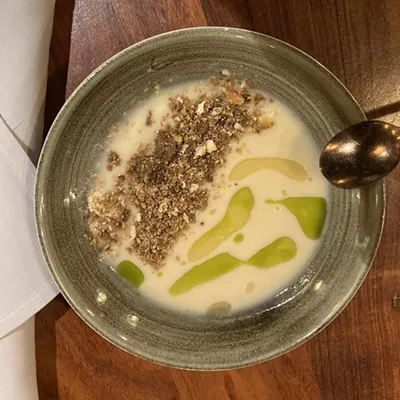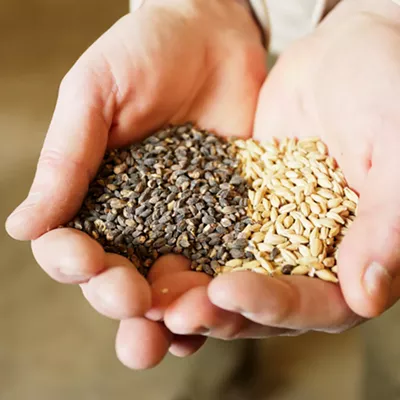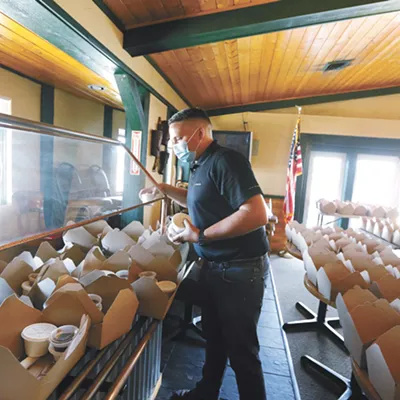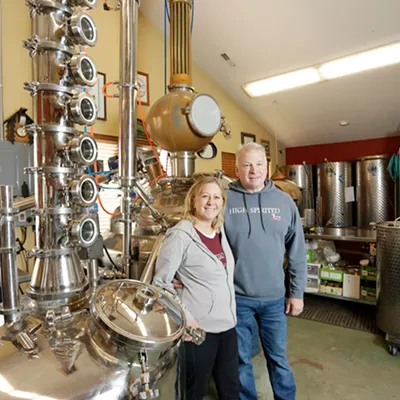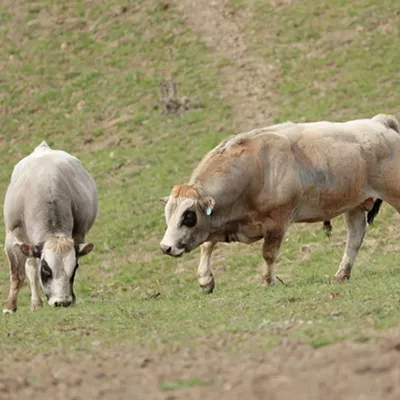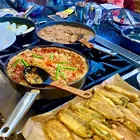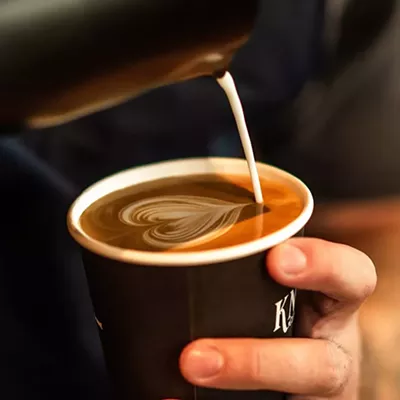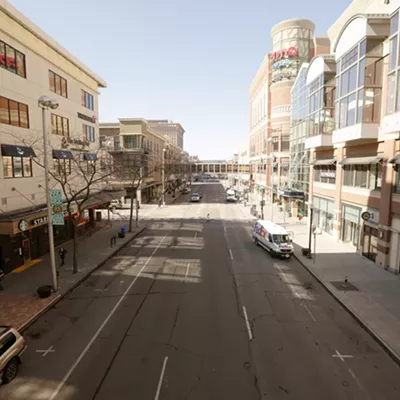I have a cartoon by Ruby Elliot, aka @rubyetc_, hanging in my kitchen. It's black and white, with sketches of a somewhat unlovely girl in three attitudes — lying face up, dancing (poorly), and stuffing a square piece of bread in her (too) wide mouth.
"I love bread
I love to eat so much bread
It absorbs my feelings
It's a tampon
for my emotions," it says.
I bought this cartoon because I feel particularly seen by it. And I realize lots of other people probably feel seen by it, too.
Bread is an intense comfort. It's a staple of my American childhood. Other people with other childhoods probably have similar feelings towards some kind of grain — rice, teff, etc. — but for me, it's wheat. Fluffy, crusty, torn, dipped, toasted, buttered. There's nothing that wins me over at a restaurant like a free bread basket.
Bread is modest. Not only is it sometimes free, but it's often a vehicle for something else, or second fiddle to the main course. A less hungry, or less carb-infatuated woman might overlook it. It might not be what you would notice if you're trying to learn about a new cuisine.
But bread is so ubiquitous that it becomes unique. Every place's riff on it is different. Baguettes in France. Pumpernickel in Germany. Naan in India. Not to mention the sourdough at Grain Shed or the beer bread at Soulful Soups. If I had been smart, I might have created a project called "Around the World in 80 Loaves."
For next week's issue of the Inlander, I wrote about Emran Restaurant & Market, a new Afghan restaurant on Division Street. There's a lot going on there — huge platters of rice and lamb, and hand-folded dumplings, sold alongside jewelry and dresses and imported rugs. But one thing at risk of being overlooked was the bread.
At first, when Nasrollah Mohammadi, owner and server at Emran, told me he would bring out some naan for us to share, I was confused. For a moment I thought I had completely misunderstood my assignment. Was this somehow also an Indian restaurant?
Then I convinced myself I misheard him. But I swore he said "naan" again when he brought out a huge fluffy flatbread, ten inches across, and set it on the table. This definitely wasn't the personal, garlic coated naan I might expect at an Indian restaurant. What was I missing?
A Google search revealed my ignorance of Indo-European and Indo-Aryan languages. Naan, or nan, or non, or non-i, are all transliterations of a basic word for bread, which is similar across related languages in Central and South Asia. Afghan naan needn't be any more similar to Indian naan than sourdough bread is to beer bread. Whatever similarities different naan have can be chalked up to regional ingredients and available baking techniques.
Mohammadi is from Kunduz, a city and province in northern Afghanistan. His parents left Afghanistan with their children when Mohammadi was an infant, fleeing the Soviet-Afghan War in the 1980s. Growing up, Mohammadi lived in Iran, Pakistan and Turkey before relocating with his wife and young children to Spokane in 2014.
Several years later, CNN reported in August 2021 that when Kunduz was taken by the Taliban, it was the first major city to fall and marked a "big blow to the Afghan government."
At the end of 2023, Mohammadi opened Emran Restaurant & Market, the first Afghan restaurant in Spokane. Amidst all the other dishes, there is always naan. The naan at Emran spills over the edges of the plate. Samira Mohammadi, Nasrollah's wife, stretches it by hand and perforates it with a fork to keep it from completely puffing up like a balloon. It's halfway between pita and focaccia, very rippable but with plenty of spring.
In Afghanistan, it's made daily at home or by naanwais at a bakery. It's present at every meal, no matter how many other carbs are present. It's dipped in whatever is nearby — a spicy, tangy yogurt sauce in my case — or used as a shovel for a sweet rice pilaf or garden veggies. True to form, naan is usually a vehicle for something else. But this naan has made it here thanks to plenty of other vehicles — cars, buses, trains and planes, to name a few.
Samira's naan has remained a staple of her family's meals wherever they are in the world. It has sustained them through violence and grief. Its signature Afghan style stays faithful to her roots, despite her being uprooted for so long. Of all the dishes I ate at Emran, it was the bread that made me think the most.
Breaking bread together is a sacred act for many. Hospitality becomes a way of life, especially for those who know what it's like to live without a home. Mohammadi believes guests are sent by God as bearers of blessing. The naan at Emran is not only a celebration of comfort and home, but an invitation to find comfort and home no matter where you are.






